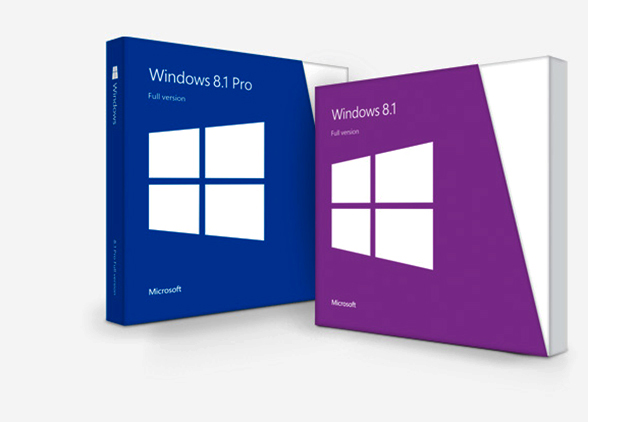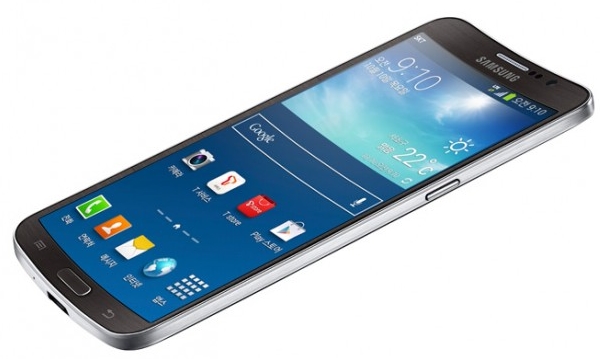
At what age should children be allowed to use the internet?
The internet is an amazing tool, especially for children looking to learn. It is essentially the world's biggest library available 24 hours a day, seven days a week. But the web also has a darker side, and parents have to ask themselves the question "when is the right time to let my child go online?" Or, as Director of Online Safety at Microsoft, Kim Sanchez puts it "How old is too young to go online?".
This is a far more complicated problem than it used to be. It is not all that long ago that the average household had no more than one computer, which may not have been connected to the internet. Now, however, we live in a time when households could have multiple computers. There might still be one shared "family" computer, but it is also very common for children to have their own computer or laptop. There are also phones and tablets to think of. Pester power is an incredible thing, and it’s a strong parent who is able to resist giving into demands for a tablets when "all my friends have one".

Breaking Moore’s Law
No law is more powerful or important in Silicon Valley than Moore’s Law -- the simple idea that transistor density is continually increasing which means computing power goes up just as costs and energy consumption go down. It’s a clever idea we rightly attribute to Gordon Moore. The power lies in the Law’s predictability. There’s no other trillion dollar business where you can look down the road and have a pretty clear idea what you’ll get. Moore’s Law lets us take chances on the future and generally get away with them. But what happens when you break Moore’s Law? That’s what I have been thinking about lately. That’s when destinies change.
There may have been many times that Moore’s Law has been broken. I’m sure readers will tell us. But I only know of two times -- once when it was quite deliberate and in the open and another time when it was more like breaking and entering.

What you need to know before upgrading to Windows 8.1
It’s nearly a year since Microsoft released the divisive Windows 8, and this week sees the launch of Windows 8.1 -- an update to the tiled operating system that aims to fix many of the perceived wrongs of the first version, while introducing some very welcome new features.
If you’re a Windows 8 or RT user you’ll be able to download the update for free starting at 4AM PDT (that’s 12pm in the UK) on 17 October. You’ll be able to get it directly through the Windows Store.

Steve Ballmer is right, and I was wrong
Steve Ballmer's departure from Microsoft will be a series of epitaphs written over the coming months. Many arm-chair pundits and analysts will scrutinize his 13-year tenure as chief executive, and you can expect him to be the scapegoat for all things wrong with Microsoft. Most assuredly, Ballmer could have done many things better, but he also contended with forces out of his control: government oversight for anti-competitive practices conducted under predecessor Bill Gates' leadership; maturing PC software market; and rise of the Internet as the new computing hub, among others.
For all Microsoft's CEO might have done wrong, he was right about something dismissed by many -- and I among them: Google. Ballmer started treating the search and information company as a competitive threat about a decade ago. Google as Microsoft competitor seemed simply nuts in 2003. How could search threaten Windows, particularly when anyone could type a new web address to change providers? Ballmer was obsessed, chasing every Google maneuver, often to a fault. Execution could have been better, but his perception was right.

Look out -- the robot middle-class is on the way
The emergence of a generation of smart machines taking over middle-class jobs within 15-years is a "futurist fantasy" according to 60 percent of respondents to Gartner's 2013 CEO survey. However, the analysts predict the rise of smart machines will have widespread business impact within only seven years.
"Most business and thought leaders underestimate the potential of smart machines to take over millions of middle-class jobs in the coming decades," says Kenneth Brant, research director at Gartner. "Job destruction will happen at a faster pace, with machine-driven job elimination overwhelming the market's ability to create valuable new ones".

Microsoft remains 'fully committed' to protecting customers from malware
There’s no question that Windows is a lot safer now than it used to be, thanks to Microsoft adding features like automatic updates, SmartScreen, and Windows Defender to its operating systems. I wouldn’t fully trust the built-in protection as my sole line of defense, but installing security software is no longer the very first thing I do on a new PC.
Dennis Batchelder, Partner Group Program Manager for the Microsoft Malware Protection Center, says that Microsoft remains fully committed to protecting its consumer and business customers, and highlights some of the things the company is doing behind the scenes to keep users safe.

Logitech G602 -- a brilliant gaming mouse [Review]
When it comes to pointing devices, I prefer mice. Try as I might, a touchpad just cannot match the precision of a mouse. However, even people who prefer touchpads for basic computer use will likely prefer a mouse for one thing -- gaming. Yes, a good gaming mouse can be the difference between fragging your opponent and being fragged.
However, finding the right gaming mouse can be problematic. After all, not only are there many different makes and models of mice but there are also many different sizes of human hands (not to mention, right-handed vs left-handed). When I first saw the Logitech G602 I was intimidated. Quite frankly, an 11-button mouse could scare away even the most hardcore-gamers. Nonetheless, intrigue outweighed intimidation and I ultimately obtained the beast.

Samsung announces first curved screen smartphone -- but only in Korea
After what was possibly the shortest-lived leak in history, Samsung announces the Galaxy Round, a smartphone with a curved screen. Just days after LG announced mass production of the first flexible display, images started to leak online that depicted a curved Samsung device.
This was followed almost immediately by a Samsung announcement, complete with the news that the phone will be available in Korea from 10 October.

Raspberry Pi sales hit 1.75 million
You might have noticed that we're fans of the Raspberry Pi here at BetaNews. The company behind the Pi announced today that it had reached the milestone of 1.75 million units produced, with a million of those being built in the UK.
The first Raspberry Pi models were built in China but since September 2012 production of the tiny educational computer has been moving back to the UK. Using a plant owned by Sony in Pencoed, South Wales, the Pi's manufacturing partners RS Components and Premier Farnell have moved all production back onshore. For the past few months all Pis on sale have been made in the UK.

AVG and Avira websites taken over by pro-Palestinian hackers [UPDATE]
There’s probably nothing worse for a major company than getting hacked. Just ask Adobe. But when the company in question is a provider of security software, well the embarrassment factor goes through the roof. And it’s definitely not good news for consumers who rely on the company’s software products to keep them safe online.
The website of AVG, makers of one of the world’s most popular free anti-virus products, was apparently hacked by a pro-Palestinian group earlier today, and fellow antivirus company Avira has also just suffered the exact same fate.

Hackers steal the info of 2.9 million Adobe customers -- are you affected?
Adobe Flash is a necessary evil. I say "necessary" because even though HTML5 has made major strides, a full and complete web experience still seems to rely on Adobe Flash. I say "evil" because, from a security standpoint, some of Adobe's products (Flash and Reader particularly) are constant thorns in the sides of users and administrators. It feels like almost every other day there is a new security update for an Adobe product. Steve Jobs infamously banned Flash from iOS and Adobe killed-off the Linux and Android versions voluntarily. Sadly, Adobe today announces a far worse security issue than a Flash or Reader exploit.
Today, Adobe Chief Security Officer, Brad Arkin writes, "very recently, Adobe’s security team discovered sophisticated attacks on our network, involving the illegal access of customer information as well as source code for numerous Adobe products. We believe these attacks may be related".

British children want tablets, shun social networks
According to a new report by the UK media regulator Ofcom, tablets are becoming the must have device for children, displacing the smartphone for younger age groups.
Around a quarter of children aged 12-15 (26 percent) and 18 percent aged 8-11 now have their own tablet computer, while household ownership of a tablet has more than doubled since 2012 to 51 percent up from 20 percent. Use of a tablet computer at home has tripled among 5-15s since 2012, 42 percent up from 14 percent, whilst a quarter of 3-4s now use a tablet computer at home.

Windows 7’s growth currently outpacing that of Windows 8
There’s not long to go now until Microsoft unleashes Windows 8.1 upon the world. In my view the operating system refresh is Windows 8 done properly, but whether it does enough to win over the masses remains to be seen.
Certainly Microsoft will be hoping for a change in fortunes because the tiled operating system's market share is currently pretty poor -- at least when you factor in how much of a push the Redmond, Wash.-based software giant has put behind it.

5 reasons not to root Android
Android is well known for its seemingly never-ending customization options and its permissive rooting credentials (well, among other things). Distributions that cannot be modified to enable elevated permissions are quite rare, as enthusiasts seek to have virtually every possible feature available at their disposal. But should you pursue that path? Does root provide what you need, or what you think you need?
There are a couple of good reasons why you probably should root Android. I've explained them in a past article. But, on the other hand, root is not for everyone, as the risks can far outweigh the benefits and you are likely to regret your decision once things get messy (and they can get messy). So here is why you should not do it.

Microsoft unveils SkyDrive for Windows 8.1 Smart Files
It is no secret that with the introduction of Windows 8.1, SkyDrive, the Microsoft cloud-based storage solution, will get much deeper integration. But now the company is detailing a bit more than what had already been gleaned from the RTM, announcing a new Smart Files feature, incorporating Bing with it.
Smart Files has been merged into SkyDrive in version 8.1 of Windows, but the company has revealed more details about how it will work and what customers can expect.
